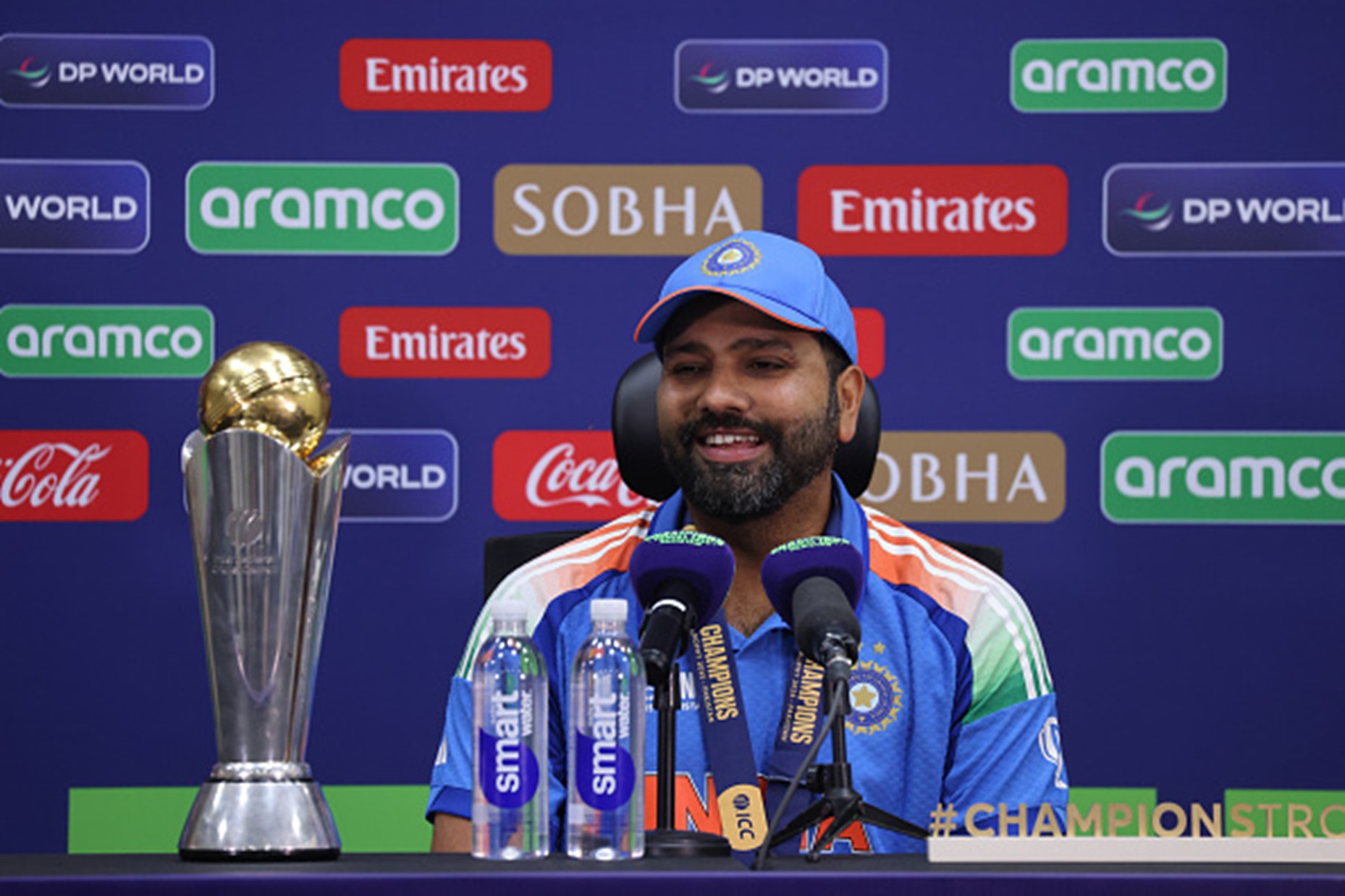Rohit Sharma‘s tenure as India’s captain came to an end on Saturday. Four years after taking over from Virat Kohli and transforming the way India approached white-ball cricket, it is time for the batting great Rohit Sharma to step back. Shubman Gill, long projected as the next big thing in Indian cricket, has been handed the captain’s armband in ODIs-just four months after assuming charge of the Test side.
The selection committee’s bold call has surprised many. Rohit Sharma ended India’s 11-year wait for an ICC trophy, leading the team to T20 World Cup glory in 2024 and following it up with a Champions Trophy triumph earlier this year. Many believed such success would guarantee him a run as captain until 2027.
Yet the writing had been on the wall ever since Rohit Sharma retired from Test cricket midway through the Indian Premier League. For him-and for Kohli, who stunned the world by quitting the longest format before the England tour – it was always going to come down to match readiness. Both are now active in only one of the three formats, and that too in ODIs, the least-played format in a calendar dominated by T20Is and franchise leagues.
Rohit Sharma is 38. By the time the 2027 ODI World Cup arrives, he will be 40. While his class and ability to dominate the best are beyond question, there is no guarantee that touch and form will remain constant, especially with only a handful of ODIs expected in the lead-up. Two years may sound long, but India might not play more than 20 one-dayers during that period.
That is why Ajit Agarkar and his selection committee, backed by Gautam Gambhir’s management team, deserve credit. Their decision is both bold and pragmatic. They appear determined to avoid the abruptness that followed Rohit Sharma and Kohli’s Test retirements earlier this year. This time, the baton has been passed with two years to spare – a planned handover rather than a forced one.
Saba Karim questions logic behind Rohit Sharma’s ODI inclusion
Former India cricketer Saba Karim has said that Ajit Agarkar & Co. shouldn’t have selected Rohit Sharma for the upcoming Australia tour, reasoning that if he isn’t the captain for the ODI series, it means the selection committee isn’t looking at him for the 2027 World Cup. Karim raised concerns about the selection committee’s long-term strategy for the 2027 World Cup.
Karim, who has held several administrative roles, including national selector and BCCI General Manager of Cricket Operations, didn’t hold back in criticising what he perceives as inconsistent planning by the current management. Karim has said that if the selectors believe Rohit would not play in the 2027 World Cup, they should clearly define his role in the side in the meantime
On Saturday, October 4, the BCCI announced the 15-member squad, marking Rohit’s return to the team for the first time since India’s 2025 Champions Trophy triumph. However, the Mumbai batter was relieved of captaincy duties, with Shubman Gill named as the new skipper.
Speaking on the matter, Saba Karim questioned Rohit’s place in the squad given that he had been removed from captaincy. The 57-year-old noted that these developments suggest the selectors are not considering Rohit for the 2027 ODI World Cup, adding that the decision was abrupt and unnecessary. Saba Karim said [via KADAK]:
“If you haven’t made him the captain, then why are you still keeping him in the team? It clearly shows that you don’t see him as part of the future, that he won’t be there for the 2027 World Cup. In that case, you shouldn’t keep a player in the team whom you don’t see as part of your plans for 2027.
Then whether he remains captain or not, or even a player or not, doesn’t really matter. That’s why I said the selectors have acted in great haste with Rohit Sharma, and there was no need for it.”
Rohit Sharma led India in 56 ODIs, securing 42 victories, including guiding the team to glory in the 2025 Champions Trophy. With the bat, the 38-year-old scored 2,506 runs in 55 innings at an average of 52.20, registering 17 fifties and five centuries. During the same interaction, Saba Karim also added that by the next home season, Shubman Gill could become India’s all-format captain. He acknowledged Gill’s potential to take on the role and said:
“You have elevated him and even made him the vice-captain in T20s. Now that you have made him captain, the thought is that very soon, maybe by the next season, we will see Shubman Gill leading in all three formats. Looking at it this way, their thinking seems correct.
They feel that there is no other capable leader, and that’s why they are pushing Shubman at this time. He has also shown good captaincy, performing well in Test cricket. Now we will see how he does in ODIs, but yes, he has the capabilities to become a captain.”
Shubman Gill will return to action on Friday, October 10, captaining India in the second Test of the two-match series against the West Indies at Arun Jaitley Stadium in Delhi. As India ushers in a generational shift with Gill leading the one-day side towards 2027, Rohit Sharma faces perhaps the most demanding transformation of his career yet: from captain to mentor, from front-runner to elder statesman.
For India, this dual-generation arrangement could prove a masterstroke. Gill brings freshness; Rohit Sharma brings gravitas. Between them lies continuity. Managed correctly, it could mirror the Dhoni-Kohli model of 2017-2019: an outgoing leader anchoring culture while the new one experiments. Dhoni did it quietly, almost invisibly. Rohit possesses the temperament to do the same.
Rohit’s legacy is already secured: five IPL titles, a T20 World Cup, a Champions Trophy, and more than 10,000 ODI runs. Yet his deeper imprint is attitudinal. He has shown that aggression and intelligence can coexist; that leadership is about challenging norms, not preserving comfort.
If he can now embrace mentorship, Rohit Sharma will achieve something rarer still—leadership without a title. Imagine it: Rohit at 40, standing beside Gill as India lift the World Cup-smiling not as captain, but as architect of the team’s ethos. That would be a full-circle moment worthy of Indian cricket’s most path-breaking leader.
Also Read: ENG vs IND : Shubman Gill Appointed Test Skipper For Red Ball

